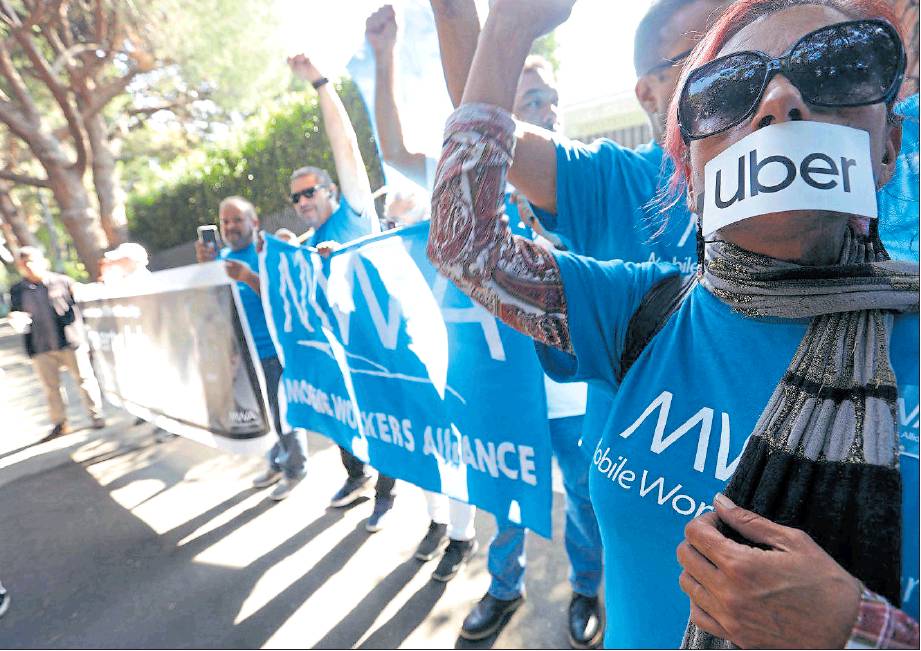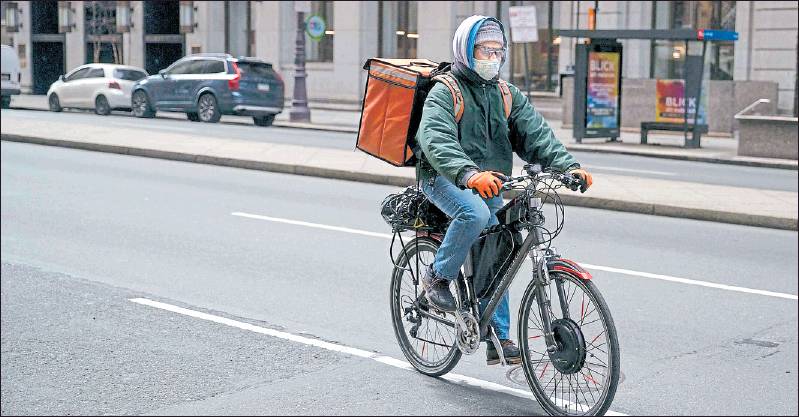LABOR
Boost for Companies
A new federal labor rule will make it easier for gig economy businesses to classify workers as independent contractors.
By Suhauna Hussain LOS ANGELES TIMES
Amove by the federal Labor Department that will make it easier for businesses to classify their workers as independent contractors offers a boon to gig economy companies in the final weeks of the Trump administration.
The rule has no bearing on California, which has already established its own standards for worker classification, and gig companies in the state have already secured their ability to keep workers classified as contractors. President-elect Joe Biden, who has pledged to extend protections of employment law to more workers, may try to challenge the federal rule, experts said.
Under the final rule released Wednesday by the Labor Department, it will become harder for gig workers or others involved in contract work, such as truck drivers or contract nurses, to be considered employees under federal law and get minimum wage and overtime. The rule is set to go into effect March 8.
Labor advocates said it will be a setback to protections for workers. The rule has implications for millions of others beyond gig workers, including people in service jobs working as janitors, house cleaners, and construction workers, potentially stripping them of protections that come with employee status, said Catherine Ruckelshaus, legal director and general counsel at the National Employment Law Project.
Biden has pledged sweeping policy changes that would expand protections for workers and independent contracts. Ruckelshaus said she expects the rule may be overturned by Congress or by the Labor Department in the next administration.
“We’re hoping and expecting it will be frozen or undone,” she said. “But it’s not a done deal by any stretch.”
The new administration could freeze the rule on a technicality, and set in motion a lengthy regulatory process to create a new set of rules, or overturn the rule through a congressional vote.
California, alongside a handful of other states, has passed its own set of laws governing worker classification. A 2018 California Supreme Court decision called Dynamex established stricter standards under which workers can be treated as independent contractors rather than employees. The state legislature then passed a sweeping labor law that codified that ruling. Gig economy companies fought the law vigorously before it went into effect at the beginning of 2020.
Although the law’s stricter standards remain in effect, gig companies won a carve-out with a proposition bankrolled by ride-hailing giants Uber and Lyft, among others, that voters approved in November. Proposition 22 allows those and other gig companies to keep treating their workers as contractors, offering a model for preserving contractor-status.
Gina Miller, a law partner in Snell & Wilmer’s Orange County office, said the federal rule seems to have taken cues from the California law. For example, Proposition 22 requires companies to provide occupational accident insurance to workers even as they continue to be classified as contractors. The Labor Department rule allows for contract workers to get compensation in alternate ways, such as through a health-care stipend.
“It allows companies to give workers these quasi-benefits without being concerned it will undermine their classification,” Miller said.

